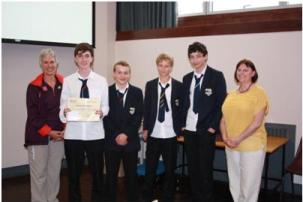Heterogeneous Catalysts studied by Synchrotron Radiation Techniques
Environmental concerns and limited resources of fossil fuels demand new sources of energy, such as organic molecules that can provide hydrogen for fuel cells or carbon-neutral biofuel. These technologies require new classes of heterogeneous catalysts, which are currently developed by Johnson-Matthey in partnership with several Universities. The PhD project based at the University of Reading will concentrate on the study of fundamental interactions between reactants and new types of heterogeneous catalysts by using state-of-the-art experimental techniques based on synchrotron radiation from the UK’s Diamond Light Source and other European synchrotron radiation sources. The project is jointly funded by Johnson-Matthey and the University of Reading and will be under the supervision of Professor Georg Held (Reading and Diamond). It will be embedded in the Interfacial Chemistry Research Team in Reading, an interdisciplinary team of scientists carrying out fundamental experimental and theoretical research in the fields of catalysis, nano-science and biotechnology (more information at http://www.reading.ac.uk/chemistry/research/chem-interfacialchemistry.aspx) with strong interaction with the nearby Johnson-Matthey Technology Centre (JMTC). Experiments will be carried out at synchrotron radiation facilities, Reading and JMTC.
Applicants should have a strong background in Physical Chemistry or Physics and an interest in computer programming related to data analysis (training will be provided).
Funding Notes:
The PhD studentship is available from 1st October 2012 in the Department of Chemistry, University of Reading and is open to EU and UK candidates holding or expecting 1st class or 2.1 degrees or equivalent in Chemistry, Physics or related subjects are invited to apply.
The stipend for the academic year 2012/13 is currently £13,590.
References:
For more information please contact
Professor Georg Held
Tel: 0118 3784367; email: g.held@reading.ac.uk


